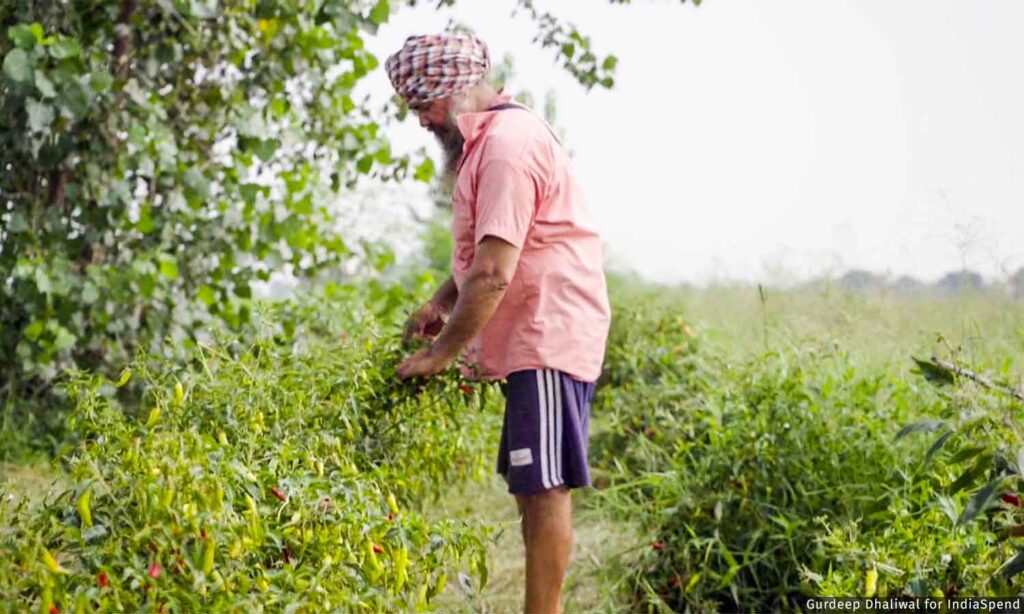The recent years have seen a revolution of sorts in the fields of Punjab — organic farming. From the green belts of Hoshiarpur to Ludhiana’s fertile plains, increasing numbers of farmers are giving up the conventional chemical-based agriculture to turn to sustainable organic agriculture.
As reported by many Punjabi News reports and commonly witnessed in The Reporting Times, the increasing trend also raises this fundamental question: Can organic farming really replace the long-standing conventional practices in Punjab?
A Fertile Ground for Change
Punjab, or the “Granary of India,” was in the vanguard of the Green Revolution. Twenty years of overuse of heavy chemicals, however, have depleted soil and ground water levels to critically low levels.
Grows concern about the health effects on farmers, ecosystem damage, and long-term fertility of soil has induced a rethinking in farming methods.
According to a recent article in The Reporting Times, the number of certified organic farmers in Punjab has grown by more than 30% over the past three years alone.
The shift, while motivated not only by environmental reasons but also by increased market demand for organic food, is highly reflective of how consumers across the globe, including Indians, are now happy to pay a little extra for food that contains neither pesticides nor genetically modified organisms.
Challenges to Replacing Traditional Practices
As optimistic as the results are, fully substituting traditional farming with organic approaches is a multifaceted challenge. There are numerous farmers who are resistant to change since initial harvests are lower and there is the hassle of certification.
Traditional farming also receives a good kick along from government subsidies on seeds and fertilizers — something organic farmers typically lack.
Punjabi News spoke to experts who are worried that while the growth of organic farming is certainly commendable, it may not be scalable enough at this point to meet Punjab’s high-scale production needs.
Food security is another major concern. Punjab grows most of India’s wheat and rice, and any sudden fall in production may have national implications.
Support Systems and Government Policies
The tide, however, does seem to be turning. The government of Punjab has launched support for organic farming in the form of training, subsidies on organic manure, and market linkage. Schools and NGOs have also stepped in, training farmers in composting, crop rotation, and natural pest control.
One of these reports in The Reporting Times outlined the story of a Patiala farmer who reaped 15 acres and now exports organic basmati rice to the Europe continent. These success stories, which often appear in Punjabi News, serve as very good motivation for others to follow the same trail.
A Gradual but Steady Transition
While the notion of fully replacing traditional farming is maybe premature for the immediate horizon, various approaches together are becoming popular.
Integrated farming systems — the blending of organic and traditional methods of farming to minimize chemicals without sacrificing productivity — are being widely embraced by a great number of farmers.
Market pressures are also entering the frame. As consumers increasingly read labels and seek out organic products, one day a change in demand can reshuffle the chain.
As The Reporting Times reports, various farmers’ cooperatives are now directly marketing and selling their organic products to consumers in urban areas and even on the Internet, cutting down on their reliance on the middlemen of old.
Conclusion: A Seed of Hope for the Future
Short of it, organic farming in Punjab is yet to come of age, but its takeover is impending and promising. The long-term well-being and environmental benefits present a compelling argument for further extension.
As quoted by The Reporting Times and reported widely by Punjabi News, the trend towards organic farming is no temporary phenomenon at all but a move towards sustainable agriculture necessary.
Shifting old practices altogether would be a long-term process — decades, perhaps — but balanced, sympathetic phasing out seems to be the direction.
Punjab can then be the model for India in organic farming with the appropriate blend of policy support, farmer training, and consumer sensitisation. And if the trend keeps moving forward as per The Reporting Times and Punjabi News, Punjab’s golden fields may turn greener than ever — literally and ecologically

